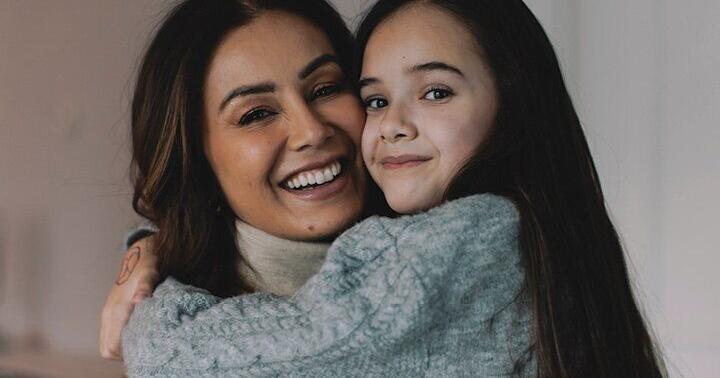It feels like there’s never been a more challenging time to be the mom of an adolescent.
We’ve all seen a lot of scary statistics. Rates of teenage mental illness rose sharply in the 2010s, and have been steadily increasing ever since. Emergency room visits for self-harm rose by 188 per cent among teen girls in the U.S. and 48 per cent among boys. The global pandemic exacerbated this by significantly decreasing physical activity and socialization, not to mention adding a healthy helping of anxiety about climate change and the world (*gestures wildly*) in general. Around one in four young people in Canada have had thoughts of suicide, which is now the second leading cause of death among young Canadians. The kids, it’s clear, are not all right.
The bestselling book “The Anxious Generation” by social psychologist Jonathan Haidt became required reading among parents of chronically online Gen Zs and Gen Alphas when it was published in 2024. Haidt argued that smartphones, social media and online gaming — which he calls “the great rewiring of childhood” — are to blame for the youth mental health crisis.
There’s a reason Netflix’s wildly popular series “Adolescence” gripped the zeitgeist with its chilling portrayal of young male rage borne of a childhood spent indoors, with too much unsupervised access to developmentally inappropriate content. For many parents, it hit a little too close to home.
Around the world, schools and youth advocates are trying to combat this phenomenon by limiting cellphone and social media usage — in Ontario, students from kindergarten to grade 6 must now keep their phones on silent and out of sight for the entire day, unless permitted by an educator; students in grades 7 through 12 can only use cellphones on school property outside of class time.
But there’s a first line of defence, before educators, lawmakers and intellectuals, that still has an enormous influence on children: Their parents. Parenting philosophies and rules may vary, but some themes endure: In-person interaction with friends (without phones) and open lines of communication with your kids are crucial.
That’s why Melissa Grelo’s parenting north star is radical honesty and openness. “For my parents, who were both immigrants, the struggle was very different for them, raising kids,” said Grelo, host of “The Social” on CTV and the podcast “Aging Powerfully,” of her Portuguese-Filipino upbringing. “I was very mindful having my own daughter that I was going to do things quite differently… and in a way that I perhaps wish that I had growing up.”
Grelo, who lives in Toronto with her husband Ryan and daughter Marquesa, describes her preteen as assertive, confident and mature for her age. She says they talk openly about everything from body positivity and sex-ed to gender identity and politics — to the shock of her own parents. “There’s nothing that she can say that’s going to upset me,” said Grelo.
Boundaries are important (“There’s a life that she has with her friends outside of me”) but the goal is clear: Show your daughter she can talk to you about anything so one day, when it really matters, she will.
Marquesa agreed. “The most special part about my relationship with my mom is how accepting she is. Whenever there’s girl drama, I can always tell my mom about it.”
Grelo, a former teacher with a psychology degree, has read “The Anxious Generation” and thought a lot about raising her daughter in a world that’s increasingly, overwhelmingly online. “The biggest challenge is how do you push up against a tsunami of what is now undebatable, undisputable data on what [technology and social media] is doing to our children?” She takes a relatively hard line: only supervised, short interval iPad access, and no smartphone until Marquesa’s at least 16; a “dumbphone” (without internet, which can only be used for calling or texting) or smartwatch is under consideration.
Grelo recognizes these rules risk being perceived as hypocritical — Marquesa has watched her media-personality mom grow a following online — but says the risks of cyberbullying are just too high. “Social media is so much of my life; I have a business through monetizing Instagram. So Marquesa sees me online a lot,” Grelo said. “She has seen me go through a lot of craziness through social media. And I said to her, ‘If mommy, as a full-grown woman, has a very hard time navigating this thing, there’s absolutely no way that I’m going to open up the floodgates to let the internet have at my daughter.’”
We asked Marquesa her thoughts on it, too. “The best part about technology is that I can stay connected with my friends. Another good thing about technology is that I am out of my parents’ hair!” she said. “The worst part about technology is that there are haters. Another bad part about technology is that my mom always complains that it keeps me inside too much!”
The best way to combat the rewiring of childhood, according to Grelo, is to push kids back outside — sometimes literally. “What I’m trying to do now, in cahoots with all her friends’ moms, is get the kids back to the way we were raised, which is in real life, playing face-to-face, getting outside, sleepovers,” she said. “It sounds so simple and yet it’s so insidious how online life has created what has been dubbed the ‘indoors generation.’ We grew up outside!”
Ultimately Grelo delights in watching her daughter grow up. “I love this age. They’re finding their own identity, they’re starting to grasp concepts of the world around them and figure out their place,” she said. “It tickles all of my intellectual parts to be able to look at her and be like, ‘Oh my God, this is like a real-life case study.’ Also, she’s mine and I see how much of my influence is there. And I see how much of her is just her all on her own. I’ve been having such a blast.”



